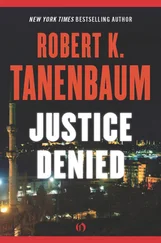Донна Эндрюс - Access denied
Здесь есть возможность читать онлайн «Донна Эндрюс - Access denied» весь текст электронной книги совершенно бесплатно (целиком полную версию без сокращений). В некоторых случаях можно слушать аудио, скачать через торрент в формате fb2 и присутствует краткое содержание. Год выпуска: 2004, Издательство: New York : Berkley Prime Crime, Жанр: Детективная фантастика, на английском языке. Описание произведения, (предисловие) а так же отзывы посетителей доступны на портале библиотеки ЛибКат.
- Название:Access denied
- Автор:
- Издательство:New York : Berkley Prime Crime
- Жанр:
- Год:2004
- ISBN:нет данных
- Рейтинг книги:3 / 5. Голосов: 1
-
Избранное:Добавить в избранное
- Отзывы:
-
Ваша оценка:
- 60
- 1
- 2
- 3
- 4
- 5
Access denied: краткое содержание, описание и аннотация
Предлагаем к чтению аннотацию, описание, краткое содержание или предисловие (зависит от того, что написал сам автор книги «Access denied»). Если вы не нашли необходимую информацию о книге — напишите в комментариях, мы постараемся отыскать её.
Access denied — читать онлайн бесплатно полную книгу (весь текст) целиком
Ниже представлен текст книги, разбитый по страницам. Система сохранения места последней прочитанной страницы, позволяет с удобством читать онлайн бесплатно книгу «Access denied», без необходимости каждый раз заново искать на чём Вы остановились. Поставьте закладку, и сможете в любой момент перейти на страницу, на которой закончили чтение.
Интервал:
Закладка:
But Maude kept forgetting to use the new identity around the office, and eventually they'd stopped trying. Presumably the employees thought "Turing" was an online
nickname. Most probably had friends they knew only by such nicknames.
The employees even had an in-joke about their CEO's invisibility. On a wall just inside the entrance, someone had hung a brass plaque that read OUR FOUNDER in old English letters. Every week or so, someone hung a picture of some well-known woman beneath the plaque. This week, it was an unflattering official photo of Golda Meir. Maude suspected Turing much preferred last week's portrait of the young Katherine Hepburn.
Casey had only been at Alan Grace for a few months, but he'd already absorbed the corporate culture, right down to his admiration for Turing. And for the first time since they'd founded the company, they didn't have a huge backlog of hardware waiting for someone to repair or dispose of it.
"He's efficient," Turing said, as if echoing Maude's thoughts. "We should keep him on part-time if he goes to college in the fall."
"Good idea," Maude said. She considered asking Turing the question that had been bothering her, but instead made a written note—since obviously mental notes hadn't worked—to look up Casey's full name. She recalled that he'd been equipped with two names when he'd arrived, but she couldn't remember the other, or even whether Casey was his first or last name. He also had an official title—probably either "Desktop Support Specialist" or "Hardware Maintenance Technician"—but now everyone simply called him Casey, the hardware guy.
She picked up the resume file and tried to read. Or at least look as if she were reading. She'd taken two weeks of vacation from her other job at Universal Library specifically to concentrate on hiring an assistant to help her at Alan Grace. She should at least make some progress.
And then she shook her head and dropped the resumes again. She couldn't concentrate; she might as well talk.
It wouldn't bother Turing, who was probably having hundreds of far less interesting conversations already.
"Do you really think it's Garcia?" she asked.
"I don't know," Turing said. "Seems unlikely, of course. I know it seemed a waste of time, hacking in to put the trace on his card. We all agreed that Nestor Garcia was a fake identity that he'd probably never use again."
"With the FBI and the police both after him, yes," Maude said, nodding. "Logically, he should have dumped the card even before he left town."
"Except it's hard setting up identities," Turing said, picking up a discussion they'd had a dozen times before. "I know that from doing it for you and Tim. So why not keep the Garcia identity, in case he ever got into a desperate situation?"
"Maybe," Maude said. She tried to imagine Nestor Garcia in a desperate situation, one step ahead of arrest, and failed utterly. She could only picture him as she'd met him, a dapper sixtyish man in a spotless, white linen suit; courteous, chivalrous, articulate, cultured—outwardly harmless. And yet she deduced from the FBI's questions that he was a dangerous career criminal. She had no trouble accepting that idea. But she couldn't imagine him foolish enough to reuse the card.
"Does all this online buying really fit the theory that he's on the run and desperate?" she asked aloud. "He'd have to stay put somewhere to get the stuff, and if UPS can find him, so could the cops."
"True," Turing said. "I suspect he threw the card away after all, quite literally, and someone else found it and began using it."
"But why the six-month gap?"
"We may never know. The authorities would never tell us, so we're out of luck unless we find out for ourselves."
"Fat chance."
"Maybe not," Turing said. "Hang on. One of these places has a system I can get into."
Probably a computer equipment vendor. Turing watched for sales of certain kinds of specialized computer hardware that she suspected her clone—or whoever held her clone captive—might eventually want. She'd developed good channels into the systems of the vendors who carried such equipment.
If Garcia wasn't using the card, was tracing it worthwhile? Possibly, if it gave them a clue to Garcia's whereabouts.
"It's looking more like a stolen credit card scenario," Turing said. "Whoever's using the card ordered several thousand dollars worth of CompactFlash cards and memory sticks, along with a pair of high-end PDAs."
"Small objects with a relatively high monetary value; and generic enough for easy resale," Maude said, nodding.
"But this is odd. And possibly useful. They paid for overnight delivery. To a local address."
"Local? Where?"
"Oakton, Virginia. That's local, right? Fairfax County. Here, I'll show you."
Maude glanced at the map Turing had displayed on her screen.
"Not far at all," she said. "This could be a break. If we locate whoever's using the card—even if only to confirm that it's not Nestor Garcia using it—"
"Tim could stake it out," Turing said.
"I'll call him," Maude said, the phone already in her hand.
Tim fumbled for his cell phone to silence the shrill snippet of Vivaldi that broke the peaceful atmosphere and drew such a stern frown from the reference librarian.
He saw Maude's name on the caller ID.
"Call you right back," he said, and cut off the call. He got up as quietly as possible and headed for the door, walking softly on the balls of his feet. The reference librarian didn't look placated.
He shed his jacket when he stepped out into the slightly sticky warmth of a June morning and found a quiet spot to return Maude's call.
"Sorry," he said. "I was in the library. And yes, I forgot to set the phone to vibrate."
"Are you doing something interruptible?" Turing asked, in the familiar, only slightly mechanical voice she used on the phone.
"Completely," Tim said, rubbing his forehead with his free hand. "Looking through old microfilm, and if I do it much longer, I'll probably run amok and be permanently banned from the whole Arlington County Library system. Something urgent?"
Must be important, he thought—Turing usually felt too self-conscious about her voice to talk on the phone when she could have Maude do it.
"We may have a clue to T2's whereabouts," Turing said. Tim listened with growing excitement as Turing described what she'd learned. Scope out the house and find out who took delivery of the shipment—sounded more like real detective work than most of what he did as a private investigator.
"Remember," Maude put in, "This probably isn't Garcia, but it's someone running a credit card fraud, and they won't like people snooping around. This could be dangerous."
"I'll be careful," Tim said.
Dangerous. Yeah, that figured, Tim thought, as he returned to the reference section to collect his things and turn in his microfilm. In the past year, he'd decided that most PI work fell into one of two categories: boring or dangerous.
The boring stuff included research—endless hours in
m Donna Andrews
courthouses, libraries, and other places where public records were available, poring through old documents on paper or microfilm—and most stakeouts. At first, when stakeouts were his bread and butter, Tim disliked them the most. A PI on stakeout attracted bad weather the way trailer parks drew tornadoes. And you never knew if you'd spot whatever you were watching for after five minutes, or five days, or not at all. At least with research you could usually break for a snack; and the places where you did research closed by nine P.M. at the latest, and didn't reopen again until eight or nine in the morning. Regular hours.
But now that he'd done a reasonable amount of both, Tim had decided that research was worse. If you knew how, you could make stakeouts a lot more comfortable, and sitting in a car in a record heat wave, or under a bush during a blizzard made a great excuse to pamper yourself afterward. And stakeouts gave him stories to tell at the monthly dinner meetings of the Private Investigators and Security Association or when he met women at parties. Mostly about funny things that went wrong on stakeouts, but even the most Keystone Kops stakeout yarn beat admitting that he'd spent the last five days driving a microfiche reader in the Alexandria City Court House, getting such bad eyestrain that he'd had to spend the whole weekend in bed. Sam Spade never got eyestrain. Or migraines.
Читать дальшеИнтервал:
Закладка:
Похожие книги на «Access denied»
Представляем Вашему вниманию похожие книги на «Access denied» списком для выбора. Мы отобрали схожую по названию и смыслу литературу в надежде предоставить читателям больше вариантов отыскать новые, интересные, ещё непрочитанные произведения.
Обсуждение, отзывы о книге «Access denied» и просто собственные мнения читателей. Оставьте ваши комментарии, напишите, что Вы думаете о произведении, его смысле или главных героях. Укажите что конкретно понравилось, а что нет, и почему Вы так считаете.












